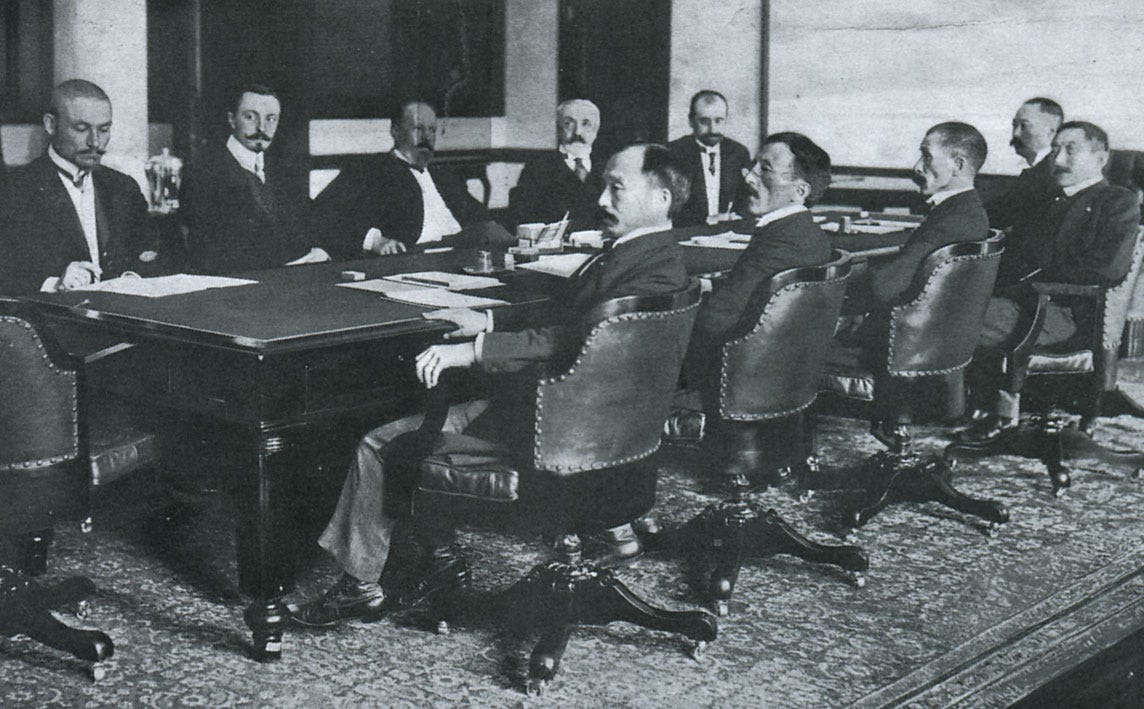Today in History: September 3-5
San Marino is born, the western Roman Empire dies, and more
Foreign Exchanges is taking a short Labor Day break but we’ll be back to regular programming on Tuesday! In the meantime please check out the latest episode of American Prestige, and if you’re not signed up for FX’s free email list please do so today:
September 3, 301: According to tradition, this is the date upon which a stonemason-turned-deacon named Marinus founds a new monastery on Monte Titano, some distance outside the Italian city of Rimini. He may have fled Rimini after a woman there accused him of being her estranged husband. The monastery grew quickly, possibly fueled by Christians looking for sanctuary amid the Diocletianic persecutions (though historians continue to debate the actual extent of those persecutions), and, taking the name of its founder, became the historical basis for the tiny nation of San Marino (“St. Marinus”). San Marino commemorates September 3 as “Republic Day.”
September 3, 863: The Battle of Lalakaon
September 3, 1260: The Battle of Ayn Jalut
September 3, 1650: The English New Model Army invades Scotland and wins a decisive victory over Scottish/Royalist forces at the Battle of Dunbar. English commander Oliver Cromwell moved quickly to capture Edinburgh and the key Scottish port of Leith. The invasion, prompted when the Scottish Parliament voted to recognize Charles II as the successor to Charles I after the English “Rump” Parliament had the latter executed in 1649, ended coincidentally exactly one year later, on September 3 1651, when Cromwell’s army again crushed a Royalist army at the Battle of Worcester.
September 3, 1783: Representatives of Great Britain and the United States of America sign the Treaty of Paris, ending the American Revolution and establishing the United States as a newly independent nation. US negotiators went around the French government, which saw itself as the leader of the anti-British alliance, to negotiate a bilateral treaty with Britain. As a result they reached an agreement that, among other things, gave the new nation control of all territory east of the Mississippi River. The French delegation had favored a settlement that confined the US to the territory east of the Appalachian Mountains.
September 3, 1939: France and the United Kingdom, along with Australia, Canada, New Zealand, and South Africa, declare war on Germany in response to the German invasion of Poland, officially kicking off the Second World War.
September 4, 476: Odoacer and his army depose Romulus Augustus (“Augustulus”) at Ravenna. This is the conventional date given for the final end of the Roman Empire in the west, though there were other claimants to the throne still kicking around and in any practical sense the western empire had been kaput for some time already.
September 4, 1839: Four British boats open fire on a group of Chinese junks enforcing a blockade on the English community in Hong Kong, killing two in what’s known as the Battle of Kowloon. This minor engagement sparked the First Opium War, which ended with Britain in control of Hong Kong and China forced to agree to major trade concessions.
September 4, 1912: The Albanian Revolt of 1912 ends
September 5, 1905: The Russo-Japanese War ends with the signing of the Treaty of Portsmouth, negotiated with the mediation of Teddy Roosevelt (who won the 1906 Nobel Peace Prize as a result). The Russians were obliged to evacuate Manchuria, acknowledge Korea as within Japan’s sphere of influence, and turn over a couple of Pacific islands to Tokyo. The war marked Japan as a rising power and contributed to growing political discontent in Russia that wasn’t resolved until 1917.

September 5, 1972: Members of the Palestinian terror group “Black September” kill two members of the Israeli delegation and take nine more hostage during the 1972 Summer Olympics in Munich. A poorly handled rescue attempt at the Munich airport by West German police the following day ended with the nine hostages killed as well as five of the attackers and one police officer.

